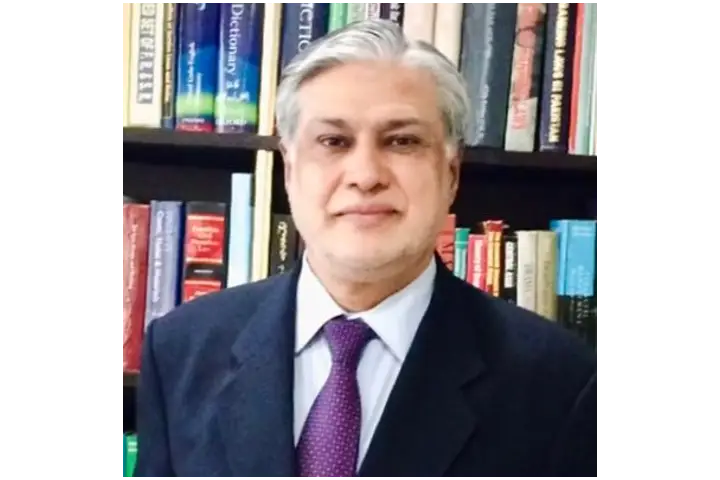

Pakistan's Finance Minister Ishaq Dar: Not in a happy spot
Trust deficit between the Shehbaz Sharif government and Pakistan’s business community is widening. For cash starved Pakistan, which is expecting to clock a GDP growth rate of a mere 0.29 per cent in 2022-23, the upcoming Budget on June 9, will be crucial. But the country’s Finance Minister Ishaq Dar did not hold any face-to-face consultations with industry representatives and business heads, deviating from an age-old practice.
“The coalition government is busy in preparing the budget due to be announced on 9 June 2023 yet contrary to past practices the incumbent finance minister has not approached trade and industry leadership for taking their input for the upcoming budget,” ARY News said.
Hit by acute shortage of raw materials, many of the country’s businesses have had to shut down. Despite the rising challenges, the government has not cared to hold any talks with the business community.
“It is not just the budget but Islamabad has not been cooperating with the business community for sometime now..this has further created a trust deficit between the government and the businesses. Many of them were hoping to have discussions during the Budget but that too has not happened,” a Pakistani business person living outside the country told India Narrative.
The steady increase in taxes applicable to a host of goods has already hurt the businesses.
While many expect the International Monetary Fund (IMF) to resume its $6.5 billion bailout package after the Budget announcements, the business captains fear that the budget may have the stamp of the multilateral agency, further crippling the economy and push inflation.
Last year, the public think tank Pakistan Institute of Development Economics (PIDE) thrashed the IMF for its one-size-fits-all recommendations.
Pakistan has used the IMF programme for 23 times in its 70 years without any lasting solution. “Yes, IMF programs have been expedient and unwilling to touch deeper structural issues. That is the IMF fault. But all our governments have also not been ready to take any tough decision. They have always been eager for easy solutions,” the think tank said.
Without the IMF’s financial assistance, the country may not be able to avert a default. Pakistan has to make a repayment of $73 billion by 2025. However, it has to make a repayment of about $3.7 billion by the end of June.
The current political crisis has made the going tougher for Islamabad.
Though China has recently rolled a small chunk of its loans providing Pakistan some relief, most other bilateral lenders including Saudi Arabia have been unwilling to lend anymore to Islamabad.
Pakistan’s local news organisation Samaa said that this change in attitude could have far-reaching implications for Pakistan’s economy since the country is heavily reliant on foreign aid and loans to keep its economy afloat. “With Saudi Arabia taking a more assertive stance in its leadership, it appears that the days of blank checks are over,” it said.
Also read: Pakistan’s political turmoil will further impact inflow of foreign loans
By Ajit Dubey The Indian Air Force is carrying out Exercise Aakraman (Attack) over a…
Several Indian American organisations have strongly condemned the recent terrorist attack in Jammu and Kashmir's…
Prime Minister Narendra Modi on Thursday spoke to the Prime Minister of Israel, Benjamin Netanyahu…
India's Sun Pharma and Israel's Moebius Medical published new data on MM-II, a non-opioid treatment…
Reliance Industries Chairman and Managing Director, Mukesh Ambani, joined the nation in mourning the deaths…
Chinese generative AI platform DeepSeek passed on personal details of Korean users to firms in…